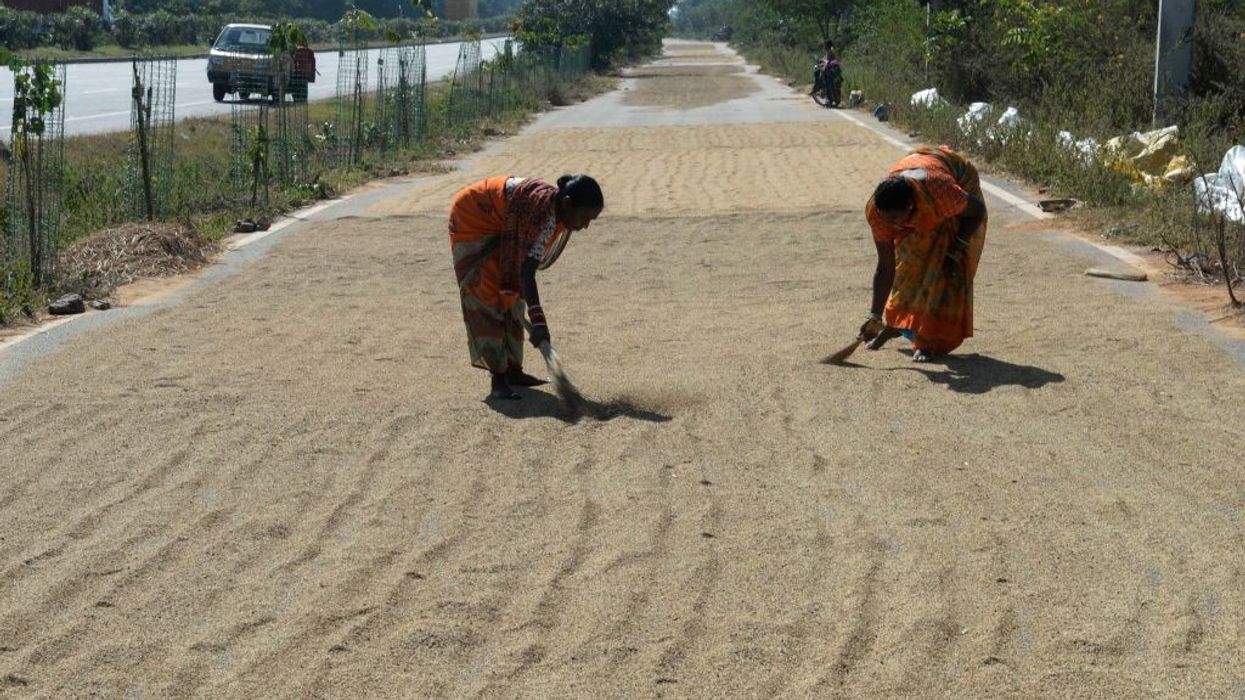India's surprise decision to ban wheat exports has raised concerns about potential curbs on rice exports as well, prompting rice traders to step up purchases and place atypical orders for longer-dated deliveries.
Government and trade officials have said India, the world's biggest exporter of rice, does not plan to curb shipments for now, as local prices remain low and state warehouses hold ample supplies.
That's a relief for import-dependent countries already grappling with surging food costs, but most of India's rice growing season lies ahead and any change in prospects for the harvest could alter its stance on exports of the staple grain.
Monsoon rains determine the size of India's rice crop, and plentiful rains this year would help it maintain its preeminent position in the global rice trade.
Patchy monsoon rains, however, would stunt the crop and cut yields and that might lead to a drawdown in state inventories that would trigger export curbs to ensure sufficient supplies for the country's 1.4 billion people.
WHY IS INDIA SO CRUCIAL FOR GLOBAL RICE SUPPLIES?
India's rice exports touched a record 21.5 million tonnes in 2021, more than the combined shipments of the world's next four biggest exporters of the grain: Thailand, Vietnam, Pakistan and the United States.
India, the world's biggest rice consumer after China, has a market share of more than 40% of the global rice trade.
High domestic stocks and low local prices allowed India to offer rice at deep discounts over the past two years, helping poorer nations, many in Asia and Africa, grapple with soaring wheat prices.
India exports rice to more than 150 countries, and any reduction in its shipments would fuel food inflation. The grain is a staple for more than 3 billion people, and when India banned exports in 2007, global prices shot to new peaks.
WHO WILL SUFFER THE MOST IF INDIA RESTRICTS RICE EXPORTS?
Any move to restrict exports from India would hit almost every rice importing country. It would also allow rival suppliers Thailand and Vietnam to raise prices that are already more than 30% above Indian shipments.
Other than serving Asian buyers like China, Nepal, Bangladesh and the Philippines, India supplies rice to countries such as Togo, Benin, Senegal and Cameroon.
WHAT'S THE ROLE OF INDIA'S MONSOON?
India's summer-sown rice accounts for more than 85% of the country's annual production, which jumped to a record 129.66 million tonnes in the crop year to June 2022.
Millions of farmers start planting summer rice in June, when the monsoon lashes India. The monsoon, which delivers about 70% of India's annual rainfall, is crucial for water-thirsty rice.
Indian farmers rely on monsoon rains to water half of the country's farmland that lacks irrigation. In 2022, India is forecast to receive an average amount of rainfall. But since June 1, when the four-month monsoon season began, rains are 41% below average.
The rains are expected pick up by mid-June and spur the sowing of rice. Three years of average or above-average rains, and new, modern farming practices have ramped-up rice output.
SHOULD THE GOVERNMENT WORRY ABOUT RICE SUPPLIES?
India at present has more than sufficient stocks of rice, and local prices are lower than the state-set prices at which the government buys paddy rice from farmers.
Rice export prices are also trading near the lowest in more than five years.
Meanwhile, milled and paddy rice stocks at government granaries of 57.82 million tonnes are more than quadruple a target of 13.54 million tonnes.
Unlike for wheat, India did not see a surge in rice exports after Russia's invasion of Ukraine in February, as the Black Sea region is not a major producer or consumer of rice.
(Reuters)




